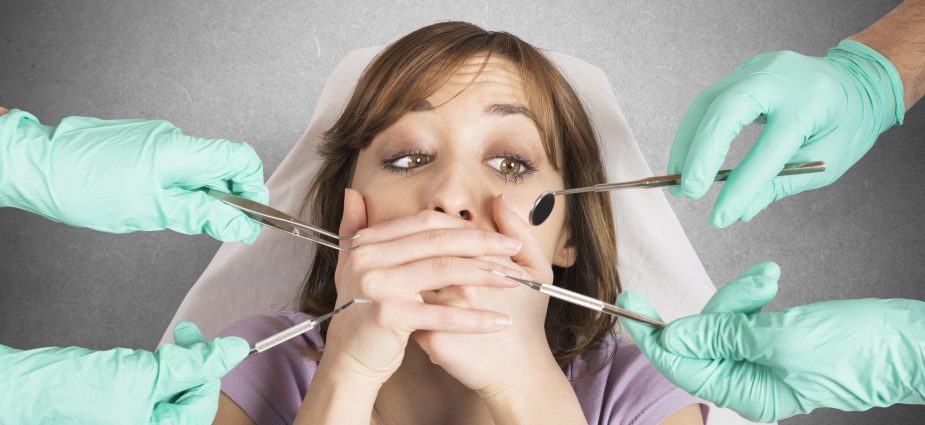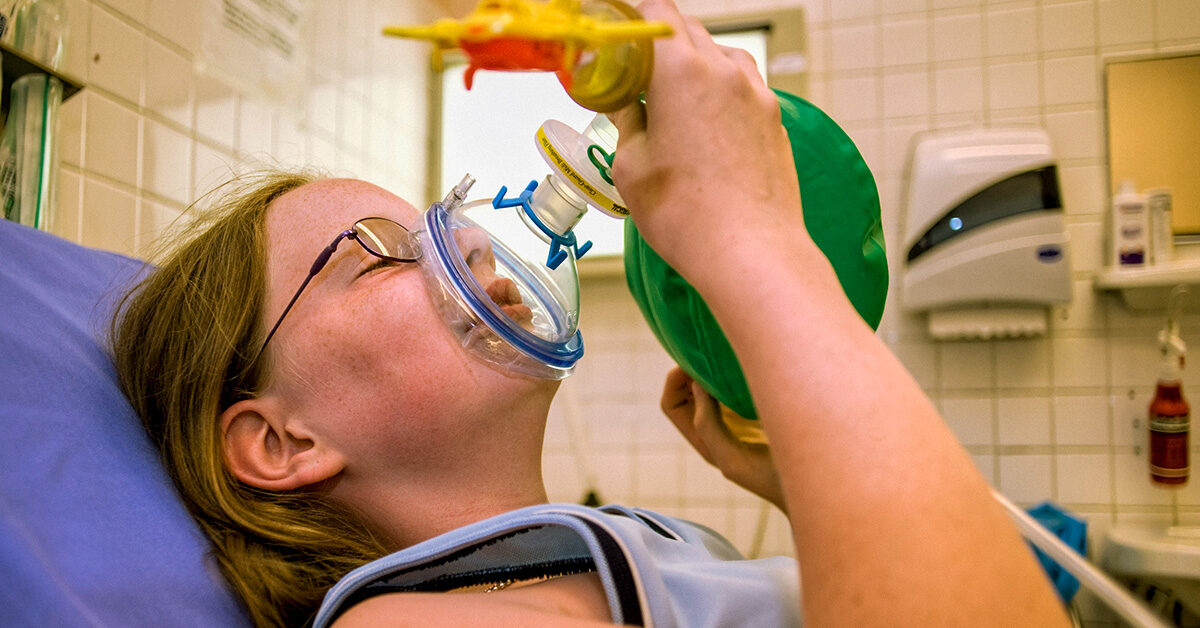SHARES

Most of us know that regular dental visits are a part of maintaining good oral health. Despite this, many of us avoid visiting the dentist regularly. Many actively avoid the dentist because of dental anxiety. Avoiding dental care due to fear can be a barrier to achieving oral health, therefore overcoming dental anxiety becomes a priority in these cases.
What is Dental Anxiety?
Dental anxiety is more than just dental phobia. Anxiety triggers can be due to concerns regarding treatment cost of treatment, side effects etc. It is not only because of fear of the dental procedure.
When does Dental Anxiety develop?
Dental anxiety is not something that naturally develops, but is a learned behaviour, shaped by past experience. This could be our own individual experiences or by observing the experiences of others, such as a parent or sibling.
A history of near-drowning or sexual abuse has also been linked with developing dental anxiety.
Previous traumatic dental treatment experience, lack of control, perceived negative behaviour of the dental clinician and/or painful dental treatment are common in the history of those with dental anxiety.
Who is affected by Dental Anxiety?
In Singapore, dental anxiety affects about 1 in 5 people [Stenebrand, 2015]. It affects both children and adults. More than 20% of dentally anxious patients do not see a dentist regularly, and 9-15% of anxious patients avoid dentistry altogether.
Symptoms of Dental Anxiety
People with dental anxiety may experience physical and psychological symptoms. They include sweating, racing pulse or palpitations, low blood pressure and fainting, upset stomach, crying, signs of panic, withdrawal, or using humour or aggression to mask anxiety. Anxious patients may also find it difficult to sleep the night before the appointment.
Anxious patients tend to routinely miss dental appointments, and may find it difficult to undergo even simple dental treatment.
Ways of Overcoming Dental Anxiety
Anxious patients can be managed with psychological techniques, effective local anaesthesia, sedation and general anaesthesia. Anxiety management should be discussed prior to starting treatment.
Some behavioural anxiety management methods include deep breathing, meditation, distractions (music or videos), guided imagery, progressive muscle relaxation or hypnosis. Cognitive behavioural therapy can be helpful.
Severe dental anxiety or phobia may require management with nitrous oxide sedation (laughing gas), anxiety-relieving pills (benzodiazepines), twilight sedation (intravenous sedation) or general anaesthesia.
Overcoming dental anxiety with medications
Nitrous Oxide
Commonly referred to as laughing gas, nitrous oxide helps people relax during dental treatment. It takes effect within a few minutes and wears off quickly. Patients are conscious throughout the treatment so this is the safest form of sedation, even for patients who have a history of high blood pressure or sleep apnea.
Anxiety relieving medication (oral sedative tablets)
Oral sedatives may be prescribed to help anxious patients relax. The administration is, take a single dose usually one hour before the dental appointment.
You will need someone to accompany you home from the dental visit as you cannot safely drive while under the influence of the sedative. The sedative can take up to 12 hours to clear from the body, so it is ideal for longer procedures.
Intravenous Sedation
An anaesthetist administers Intravenous (IV) sedation through a drip placed into a vein in the arm.
Under IV sedation, patients are relaxed and may drift off into a light sleep, but are responsive to verbal prompts. Patients may experience drowsiness and nausea after the procedure. Short-term amnesia is a benefit of IV sedation with no retention of the unpleasant memories of the procedure.
General anaesthesia
General anaesthesia involves patients being ‘fully asleep’. Side effects include nausea, a longer recovery time than other forms of sedation and a higher risk of complications.
A general anaesthetic can be a good option for some, but it does not help you learn coping strategies or get used to going to see the dentist.
If you are afraid of dental injections, your dentist can use topical anaesthesia to numb the surface of the injection area. Sufficient waiting time for the topical anaesthetic to take effect and injecting the anaesthetic very slowly helps ensure a painless experience.
There are many ways to manage and help patients with overcoming dental anxiety. With time and the support of your dentist, it is also possible to completely overcome dental anxiety.
This article is contributed by Elite Dental Group.
For More Information, contact Elite Dental Group.
References:
https://www.diva-portal.org/smash/get/diva2:811242/FULLTEXT01.pdf
http://www.sda.org.sg/sda_content/SDJ/December2014_Vol35_1.pdf
https://www.betterhealth.vic.gov.au/health/ConditionsAndTreatments/dental-anxiety-and-phobia
https://www.nature.com/articles/vital1239
Find a Dental Surgeon in Malaysia, on GetDoc
Find a Dental Surgeon in Singapore, on GetDoc
Disclaimer
Important: The authors, reviewers, and editors of GetDocSays have made extensive and reasonable efforts to ensure that medical information is accurate and conform to the standards of the publication. They reflect the opinions and views of the contributors and not the publisher.
The information on this site is not professional advice nor is it to replace personal consultation with a physician, dentist, pharmacist, or other health care professional. The reader should not disregard medical advice or delay seeking it because of information published here.
by Jemima Joseph
Using words to create communities. Intrinsically passionate about people, music, and the arts. View all articles by Jemima Joseph.











